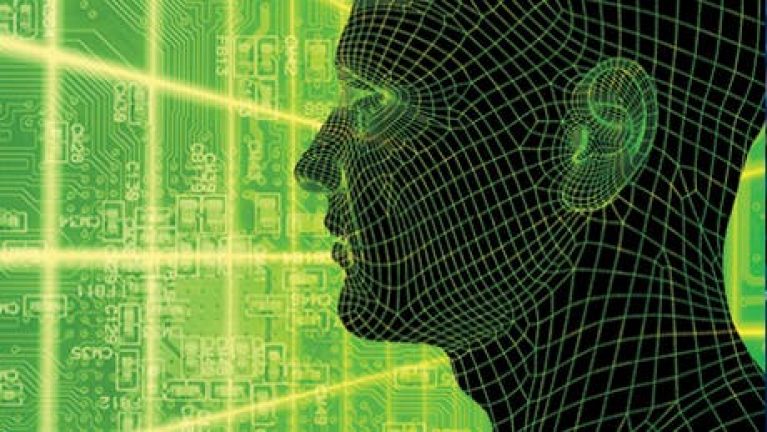
This course provides an introduction to basic computational methods for understanding what nervous systems do and for determining how they function. We will explore the computational principles governing various aspects of vision, sensory–motor control, learning, and memory. Specific topics that will be covered include representation of information by spiking neurons, processing of information in neural networks, and algorithms for adaptation and learning. We will make use of Matlab/Octave/Python demonstrations and exercises to gain a deeper understanding of concepts and methods introduced in the course. The course is primarily aimed at third– or fourth–year undergraduates and beginning graduate students, as well as professionals and distance learners interested in learning how the brain processes information. Founded in 1861, the University of Washington is one of the oldest state–supported institutions of higher education on the West Coast and is one of the preeminent research universities in the world.
Instructor Details
Courses : 1
Specification: Computational Neuroscience
|
46 reviews for Computational Neuroscience
Add a review Cancel reply
This site uses Akismet to reduce spam. Learn how your comment data is processed.
| Price | Free |
|---|---|
| Provider | |
| Duration | 31 hours |
| Year | 2016 |
| Level | Beginner |
| Language | English |
| Certificate | Yes |
| Quizzes | Yes |
FREE


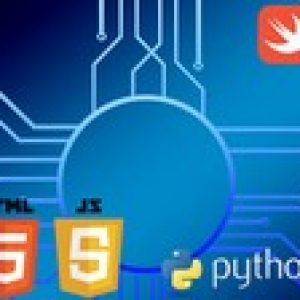
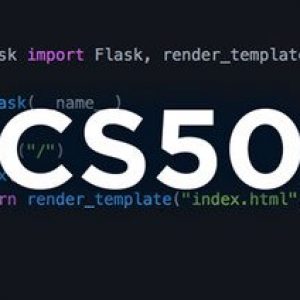
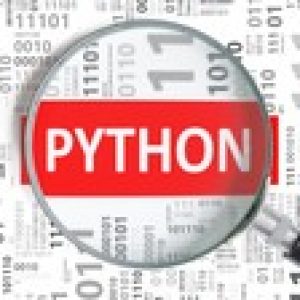
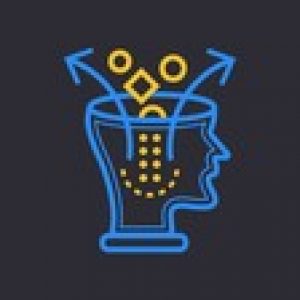
Driss A L –
As a self paced student, I like this kind of course. I hope to see a whole specialization in this field with final capstone project. Thanks.
sbansal6 –
Very clear explanations by professors. I really liked the design of the class and the lectures are very easy to understand if you are just starting in Neuroscience (they don’t throw around complicated jargon)
Wei X –
Enlightening! After this course, one know how the architecture came from.
ANGELOS A –
Very interesting course, exciting subject!!! Very chalenging in math, tutors have deep knowledge of the topics. Congratulations!!!
Fridah G W K –
Great learning experience
Pho H –
Pretty good. A bit of mathematical ambiguity and lax notational conventions, but the course content was solid and presented clearly.
Changjia C –
Fantastic course! I enjoy it and love it very much. Thanks Rajesh and Adrienne!
Anurag M –
Starts off great but get rushed 3/4ths into the course. Too much content, too little explanation, but recovers swiftly to end on a high. Recommended
Mingchen Y –
This course is very helpful! I especially enjoy doing the exercise which is well designed and facilitates my understanding of CN. Besides, I find the textbook Theoretical Neuroscience by Dayan and Abbott more understandable after I finished this coursera course.
Rob C –
Great course! Really enjoyed the variety of topics and the just enough computational work in the quiz’s. And that Eigen hat had me smiling and laughing about it for a week.
Vikrant J –
Computational Neuroscience is a well structured, insightful and methodical course. There were so many moments when I was dumbstruck by the power which our brain has, that I’ve lost the count of them! As a biophysics, signal processing enthusiast, I’m considering to go for higher studies in the field of Neuroscience and this course has just made my decision unequivocal. Big kudos to the instructors Prof. Rao and Prof. Fairhall for their inputs for both, the content of the course and sharing their research material! I can’t wait to explore the brain to its fullest! 😀
Aditya A –
I liked the course. I enjoyed solving the problems and I am now confident in learning more advanced concepts and getting my hands dirty in neural networks and machine learning. I only have one complaint like suggestion, if only the TAs or the instructors could show some examples of solutions or algorithms for the concepts, it would have been much easier. Although, i have understood the concepts, I have not yet grasped the implementations of the concepts in actual codes and programs. Please update the course regarding that. Thanks a lot again to Rajesh, Adrienne and Richard.
Al–Rashid J –
This course was enjoyable, to say the least. It helped explained the thinking behind the conceptualization of existing algorithms that I’ve been introduced to in other courses for AI, but it further explained how they were mathematically derived.
Hernan –
Muy instructivo y entretenido! Felicitaciones a los autores del mismo.
Shwetank P –
This course will be one of the most satisfying pursuits for any individual interested in exploring the intersection of neurobiology, AI and Statistics. The course is really well rounded covering all major portions in the computational neuroscience. The supplementary material provided for exploration is really intriguing and a must go for people interested in understanding the gory details behind the equations. Hands down! this one is the best MOOC experience so far for me.
Jacob B –
I really enjoyed this course and think that there was a good variety of material that allowed people of many different backgrounds to take at least one thing away from this.
Matthew W –
As a beginning PhD student in computational neuroscience, I found this course to be incredibly useful as a refresher. And as an introduction to the subject, it is incredibly engaging, interesting and, of course, one fun adventure! Many thanks to both Rajesh and Adrienne for this course!
Shahbaz K –
Made it really easy for me to get into this field. So very inspired.
Yi–Yin H –
It was an amazing journey!
Keith R –
Excellent Course! Very in depth and informative! Exceptional faculty and extensive supplementary material as well!
Vydyula A –
Intreginity of strategy of learning from stractch
Vili V –
Very enjoyable course!
Nikolaos P –
Perfect course. The only feedback I would give is, if possible, to include slides in the weekly material for review instead of just text. Thank you for this amazing tour through Computational Neuroscience!
Chinmay S H –
I learned a great amount from this course. Now, I want to learn more about neural coding
shiyang t –
Being a high school student with zero background in computer programming, i find this course a bit hard.
Julio C d C M –
A very nice introduction to Computational Neuroscience world. The main course advantage is the matching between theory and practice (programming).
Beatriz B –
In my opinion, the course level ought to be intermediate, not beginner. You can take more out of the course if you already have knowledge in this, or related, areas.
Patricia R –
Interesting but too complicated for beginners
Hariharan L –
I find it really interesting
Erik B –
Overall I enjoyed this class, but towards the end it gets more into machine learning and away from the neuroscience.
Cian M M –
Very nice indeed!
Yuyan Z –
A very good introduction to computational neuroscience! The course demands a relatively high level of mathematics (such as linear algebra, optimization problems, etc.), but all of them are quite clearly explained in the lectures.
Varun M M –
It is just perfect for an introductory level course! Paced sort of like a web series, it keeps you hooked throughout. I absolutely loved it, and as a Physics graduate going into the world of computational neuroscience, this course has helped me with building my comp neuro arsenal.
Swarn S ‘ D A W –
The discussion forums helped a lot.
T Q –
The first instructor is like Siri reading textbooks. Neither of the two instructors explained the concepts and calculations clearly. Just as another review says, they directly jump from too simple to too complicated. Overall this is one of the worst courses I have ever had.
Steven P –
Really interesting overview of the concepts, math and coding necessary to understand how neurons work. The lectures are hit and miss when it comes to explaining the content, a majority of the lectures focused on derivatives and mathematical concepts which lost me. The supplementary videos, especially with Rich were really valuable and helped to synthesize some of the content. Felt like there was a ton of information packed into this course, just not all completely applicable.
Amogh M –
Excellent course. Got to learn concepts across a wide range of subjects like information theory, statistics, biology, chemistry, etc. (I could go on). Coming from a CS + ML background, this helped me appreciate the building blocks of abstractions that we can so easily take for granted in the age of Deep Learning. It really helps to learn and think about these things because it makes you realize how nothing is set in stone and the popularity of one model (MLPs) has a lot to do with history and not just mathematics.
Andrada T –
Gaugain G –
Tres bon cours je recommande pour tous les gens interesse par les neurosciences theoriques
Ivan E –
This course is an introduction to the vast field of computational neuroscience. Every week the subject is different. I found the supplementary videos very helpful on their own, explaining concepts like entropy, probability distributions, gradient descent, and more. I have completed several Coursera courses, and this has the best kind of weekly tests (homework). I enjoyed the coding and felt that It made the concepts clearer.
Melissa S –
Very challenging course with fascinating new content that refers to a lot of research in the area! Good start for someone considering computational neuroscience.
Debapriya H –
i like this course very much and its helpful for neuroscience future study of me.
Shengliang D –
The contents are well organized and arranged corresponding to the textbook Theoretical Neuroscience. There are supplementary materials for the lecture of each week. The assignments are very helpful for understanding the lectures, with code and data for Matlab, Python 2 and Python 3, which is very friendly for people who are only familiar with some of them. It would be better if the assignments could cover more about the lecture.
Prakhya S –
Absolutely enjoyed learning about Computational Neuroscience. Well explained. Highly recommend.
Sami J –
Very interesting, buy also pretty superficial. Surprisingly low amount of hands on computation considering that it’s a class in computational neuroscience.
Estelle B –
Very interesting topic. I particularly liked the tests with programming exercices. It helped to apply the concepts I learned quite well. The tests overall are good quality and do not only expect student to copy/paste knowledge.